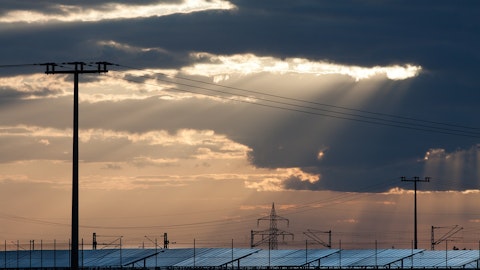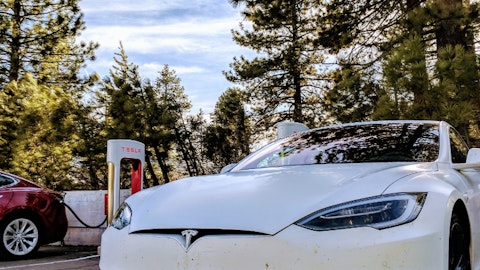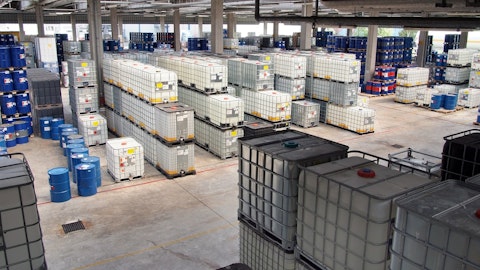2. First Solar, Inc. (NASDAQ:FSLR)
No of HFs: 40
Total Value of HF Holdings: $283 Million
In an article, White Brook Capital mentioned some commented about FSLR in their Q2 2019 investor letter
“First Solar is a provider of solar modules to the industrial and commercial segment. Despite lackluster earnings reported during the second quarter, the stock appreciated due to the growth in the backlog as their offering continues to be attractive to industrial customers globally.
Solar is having its second moment, and I believe that First Solar is the best positioned to take advantage. First Solar is an industrial and commercial solar module producer. While often thought of as a homogenous solution, solar generation assets should be considered on a spectrum with retail and industrial applications on opposite ends.
Industrial solar installations are built for utilities, usually with production capacity confirmed before installation, or less frequently on spec, with multiple potential proximate commercial customers.
Commercial installations are also large, but significantly smaller than industrial installations, and are built to offset a company’s carbon footprint or to provide electricity for manufacturing or data center operations at a specific site.
Retail commercial is becoming more commonplace, with retailers like Walmart commissioning builds at their stores or distribution centers. Community solar projects also fit within this category, where a group of residential customers will agree to use a specific solar project for their electricity alleviating the negative impact of rooftop solar.
Finally, residential which is often installed on homes.
The physics of generating electricity using solar technology are the same across the spectrum. A solar module produces electricity at the rate that the solar panel is exposed to sunlight, limited by the efficiency of the panel and the inverter used to make the electric current generated, usable. Sun exposure to the panel is different from sun exposure through the panel. A well-tuned solar module needs foliage cleared (obvious) and dust washed away (less-obvious) to achieve its potential. Once the electricity is in the panel, the electricity needs to make its way to the grid. Solar module makers use solar inverters that condition the electricity for use at the individual panel, the multi-panel, or the node level – all which impact the efficiency of the entire installation, its cost, and its resiliency to failure. Efficiency, therefore, shouldn’t just be considered on as a point in time, but over time, accounting for the lifespan of the installation, and the probability and cost of part failure.
Residential customers have a proclivity to install the most theoretically efficient panels and inverters possible, but due to the limited space on a roof and the need to get costs down, to have a very limited number of inverters. This means that while they’re potentially incredibly capable, they’re not very resilient. Additionally, a residential customer’s tolerance to pay the necessary operating costs to maintain and clean the panels is low. In real life, consumers treat their panels like consumer electronics, their value is higher than the cash flows generated at the initial installation, and the perceived value declines below cash flow relatively quickly as the technology ages. Finally, the average house is owned for 7 years, while an installation is capable for 20 years. If the new buyer does not agree on the aesthetics of the installation, solar devalues the home. Residential solar, in my view, is not a great area for investment for the consumer or for an investor.
The shortfalls present in the residential market, decline the “more industrial” the installation. In that segment, the costs to install and upkeep the modules near peak efficiency are critical to achieve the priority of the investment – a solid IRR. First Solar’s modules are exceptionally cheap to install and maintain – producing consistent predictable current even if the peak efficiency is slightly lower than peers. Given the advantages of large solar installations vs distributed residential, I believe that generation is likely to increasingly tilt towards those use cases. First Solar is extremely well positioned, and I look forward to continued gains.”

Pixabay/Public Domain





